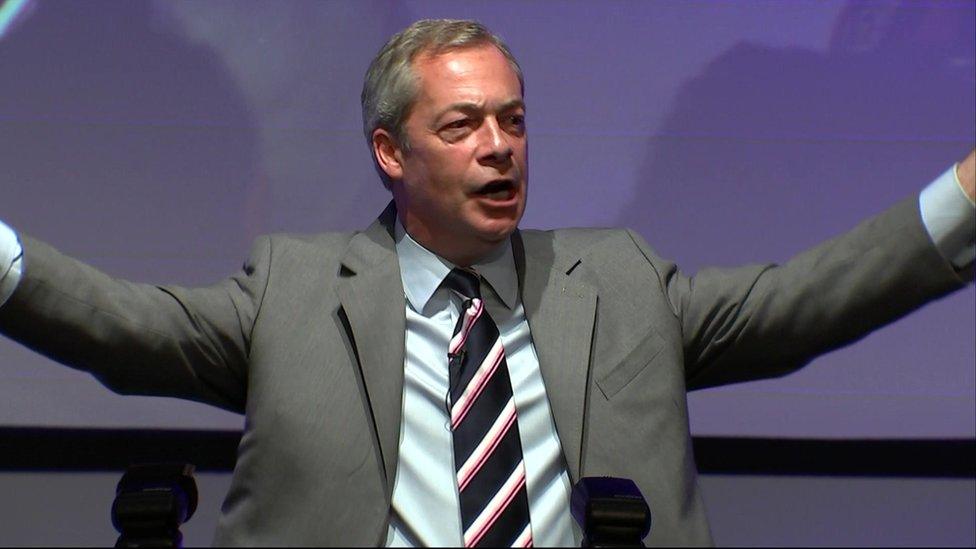Analysis: New UKIP leader's tough challenge
- Published
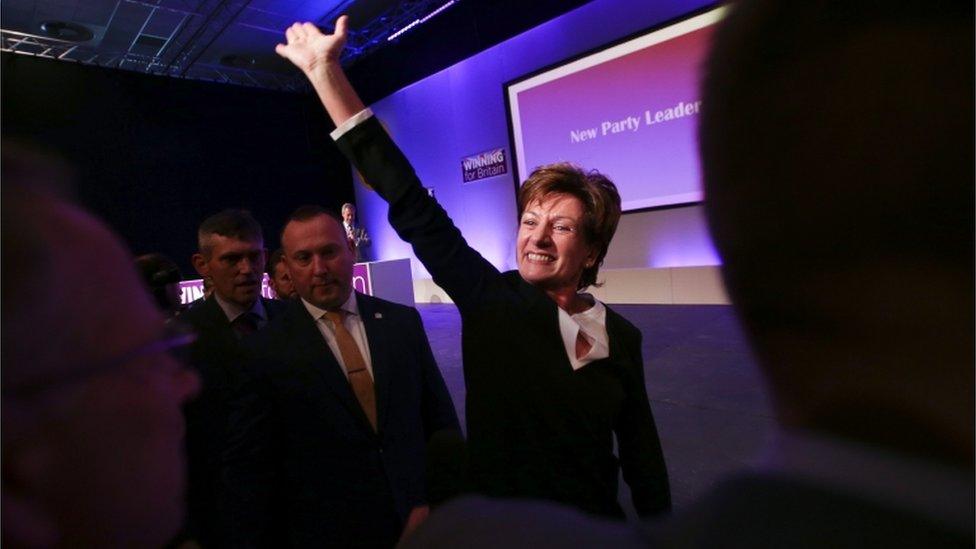
The last time UKIP delegates met in the brown brick conference centre overlooking Bournemouth beach, the party was in a very different place.
It was 2008, before its momentous first victory in the European polls, before it won some four million votes and got its first MP elected.
Before Nigel Farage resigned then returned within a week and before the referendum and the party's moment of glory - the UK's decision to vote to leave the EU.
After such a run, UKIP could be riding high. Instead, it's rudderless.
In winning the argument on EU membership, UKIP lost both its reason for existing and the leader credited with putting it on the map. Diane James must now establish both a new direction and identity - and that won't be easy.
For many, Nigel Farage is UKIP.
Diane James becomes UKIP leader
Farage: I have given UKIP 'all of me'
Ask voters in Ramsgate, Grimsby or Skegness why they back the party and his name often comes up.
His straight-talking, beer-swigging image reached parts of the electorate other politicians couldn't, and in doing so he became a household name synonymous with his party.
He'll be hard to replace. Diane James is a polished performer who portrays herself as competent and credible, but she's yet to prove she has the popular appeal of her predecessor.
Yet despite his undoubted charisma , Mr Farage is the first to admit he's a divisive character - both outside of UKIP and within.
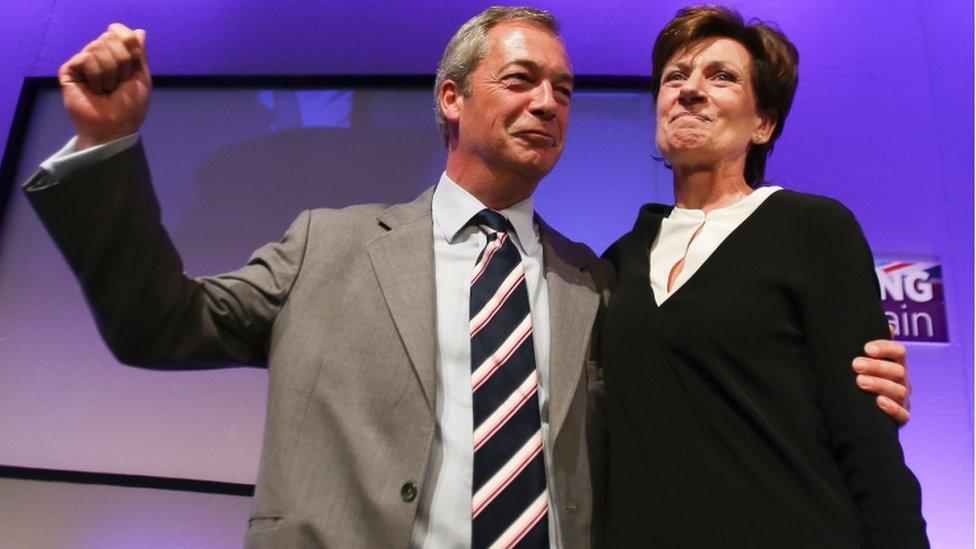
Ms James must show UKIP can flourish without her charismatic predecessor
Popular with many party members, his autocratic leadership style has alienated some in its upper echelons.
Even before this leadership contest, the party was beset by rifts.
Factions that developed during the 2015 general election hardened, popular leadership candidates were out of the running before getting started.
Two senior members have defected to the Conservatives in recent days.
Diane James will have to heal divisions that run deep. She will face animosity and anger from some senior figures, and will have to assert her authority while Nigel Farage inevitably remains on the field - a powerful voice even from the sidelines despite his promise to advise, not interfere.
Target Labour seats
Beyond its internal politics UKIP has an electoral challenge. Four million votes at the last election translated into just one Westminster seat; the current first-past-the-post voting system doesn't favour the party.
Diane James will have to not only maintain current support, but build on it ahead of the 2020 election.
With Labour facing its own leadership crisis, UKIP could use this moment to capitalise on the anti-establishment sentiment so apparent during the referendum.
Many insiders see their natural target as seats where the party came second to Labour in last year's general election, particularly in Wales and the North of England.
But the new leader must first persuade voters that the party still has appeal by proving her leadership credentials while developing policies that speak to the disenfranchised, beyond the promise of UK independence from the EU.
The pledge to ensure the government delivers on Brexit will only go so far.
In the eight years since that last Bournemouth conference, UKIP has achieved more than many members might have dreamed.
Then, some deemed it a protest movement, now it's a political party credited with forcing the government to hold the referendum which led to Brexit.
On those fronts, the mood among members is high. But despite such success Diane James is facing an enormous challenge.
She must unite a fractured party, prove it's more than one policy or one man, prove she can inspire the electorate like her predecessor did and prove that with the EU referendum over there's still a point to UKIP's existence.
- Published16 September 2016
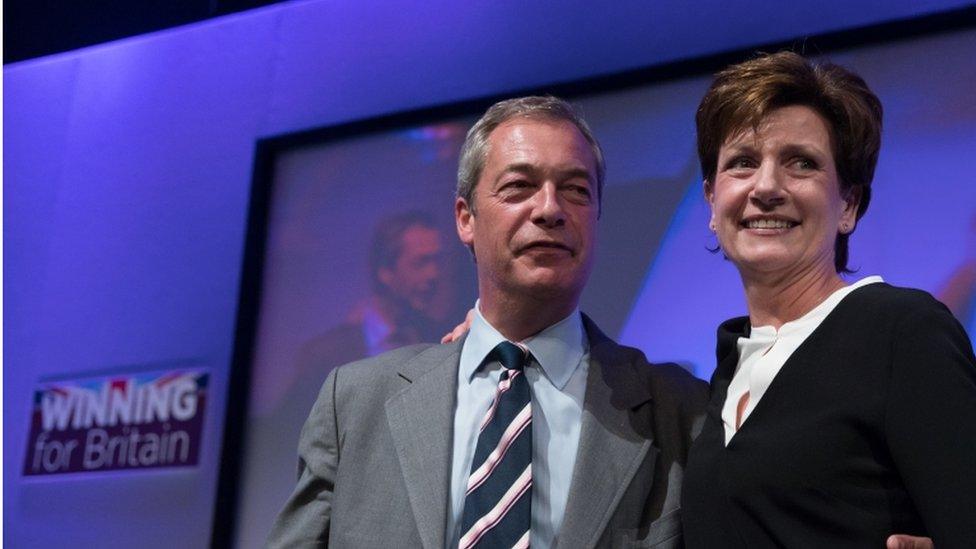
- Published15 September 2016
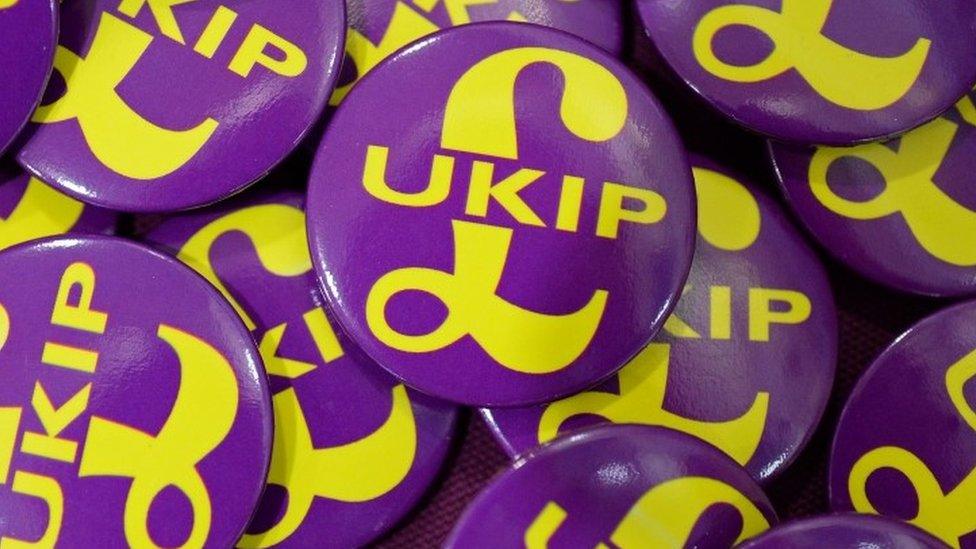
- Published4 October 2016
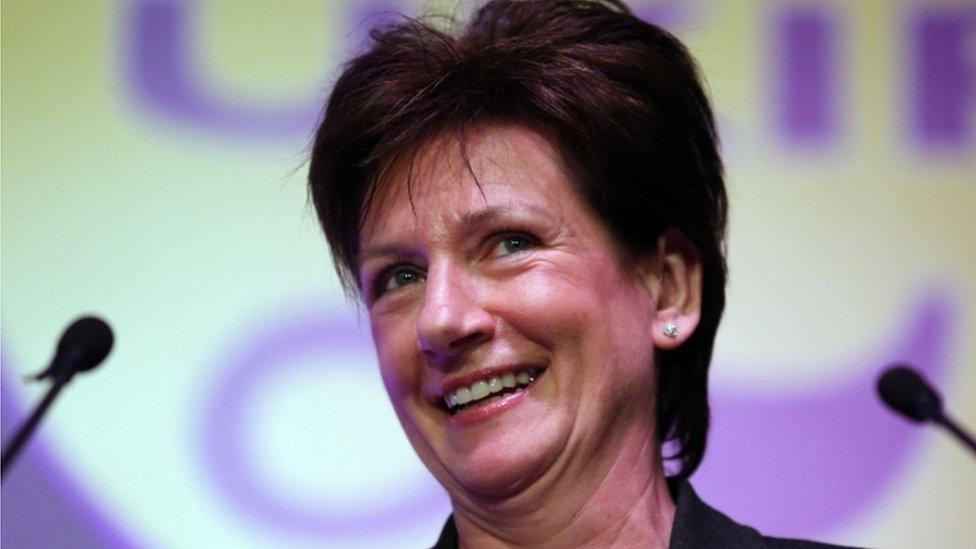
- Published16 September 2016
